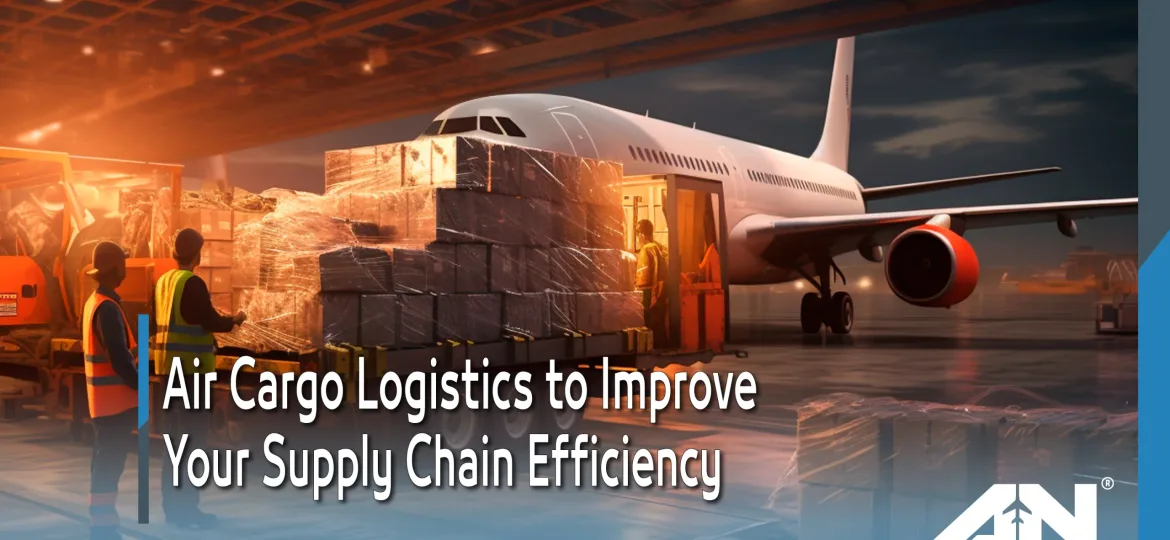
The concept of air cargo logistics is not just about transporting goods; it’s about transforming the entire supply chain for optimal efficiency. In an era where consumer demands are higher than ever, businesses need solutions that deliver goods faster, safer, and across longer distances. This is where air cargo logistics excels, offering a reliable way to ensure that goods reach their final destinations on time.
The Role of Air Transportation in Supply Chain Management
Air transportation has become an indispensable part of the supply chain due to its speed and reliability. Unlike other modes of transport, air cargo ensures that critical and time-sensitive goods like medical supplies, electronics, or perishable items can be moved across the globe quickly. Businesses looking to meet tight deadlines or maintain customer satisfaction often rely on air cargo for its unmatched efficiency.
For instance, air cargo logistics reduces the lead time for deliveries, enabling companies to respond faster to market demands. Whether it’s replenishing retail inventory or fulfilling online orders, air transportation guarantees that supply chain disruptions are minimized.
Advantages of Air Cargo Logistics
1- Speed and Efficiency:
Air cargo is by far the fastest mode of transportation available. This makes it ideal for urgent shipments, allowing businesses to reduce downtime and improve responsiveness.
2- Global Reach:
With an extensive network of airports and air routes, air cargo logistics enables businesses to access international markets seamlessly. Whether you’re shipping goods to major cities or remote locations, air cargo ensures global connectivity.
3- Reliability:
Air cargo services operate on strict schedules, reducing delays and ensuring that shipments arrive on time. This reliability enhances supply chain performance and builds trust with customers.
4- Enhanced Security:
Air cargo logistics often involves stringent security measures, ensuring that goods are protected throughout the transportation process. This is particularly important for high-value or sensitive shipments.
5- Reduction in Inventory Costs:
By speeding up delivery times, businesses can adopt lean inventory models, reducing storage costs and improving cash flow.
How Air Cargo Logistics Transforms Supply Chain Efficiency?
1. Optimizing Routes and Transit Times:
Air cargo logistics uses advanced technologies and real-time tracking to optimize flight routes and minimize transit times. This ensures that goods move from origin to destination without unnecessary delays, enhancing overall supply chain efficiency.
2. Integration with Supply Chain Networks:
Air cargo is seamlessly integrated with other modes of transportation, such as trucking or shipping, creating a multi-modal logistics network. This ensures that goods can move efficiently across different transportation modes, enhancing the end-to-end supply chain process.
3. Improved Communication and Visibility:
Modern air cargo logistics relies heavily on digital tools to provide real-time updates and tracking. Businesses can monitor shipments from dispatch to delivery, improving communication with stakeholders and allowing for proactive decision-making.
Air Cargo Logistics in Action
Take, for example, industries that rely heavily on air cargo logistics, such as e-commerce, pharmaceuticals, and electronics. Online retailers use air transportation to meet next-day delivery promises, while pharmaceutical companies rely on temperature-controlled air cargo solutions to ensure the safe transport of vaccines or medicines.
This integration of air cargo into supply chains not only boosts efficiency but also builds customer trust by delivering on promises.
Challenges in Air Cargo Logistics
While air cargo logistics is undeniably beneficial, it does come with challenges:
- High Costs: Air transportation is more expensive than other modes, making it less viable for low-margin products.
- Capacity Constraints: Cargo space in aircraft is limited, which can pose challenges during peak seasons.
- Environmental Concerns: Air transportation has a higher carbon footprint compared to other methods, pushing the industry to adopt sustainable practices like using lightweight materials and sustainable aviation fuels (SAF).
Despite these challenges, advancements in technology and the growing emphasis on sustainability are paving the way for a more efficient and eco-friendly air cargo industry.
The Future of Air Cargo Logistics
The future of air cargo logistics lies in further integration of digital tools and automation. Innovations such as artificial intelligence, blockchain, and predictive analytics will enhance operational efficiency, reduce costs, and improve tracking accuracy.
Additionally, the adoption of sustainable practices, such as electric aircraft and SAF, will ensure that air cargo logistics continues to grow while minimizing its environmental impact.
Final Thoughts
Air cargo logistics is more than just a means of transportation—it’s a strategic asset that can revolutionize supply chain efficiency. By leveraging the speed, reliability, and global reach of air transportation, businesses can stay ahead in today’s competitive market.
Whether you’re looking to optimize delivery times, expand market reach, or enhance customer satisfaction, air cargo logistics offers the perfect solution. With its continuous advancements, the future of air cargo promises even greater efficiency and sustainability, solidifying its role as a vital component of modern supply chains.

